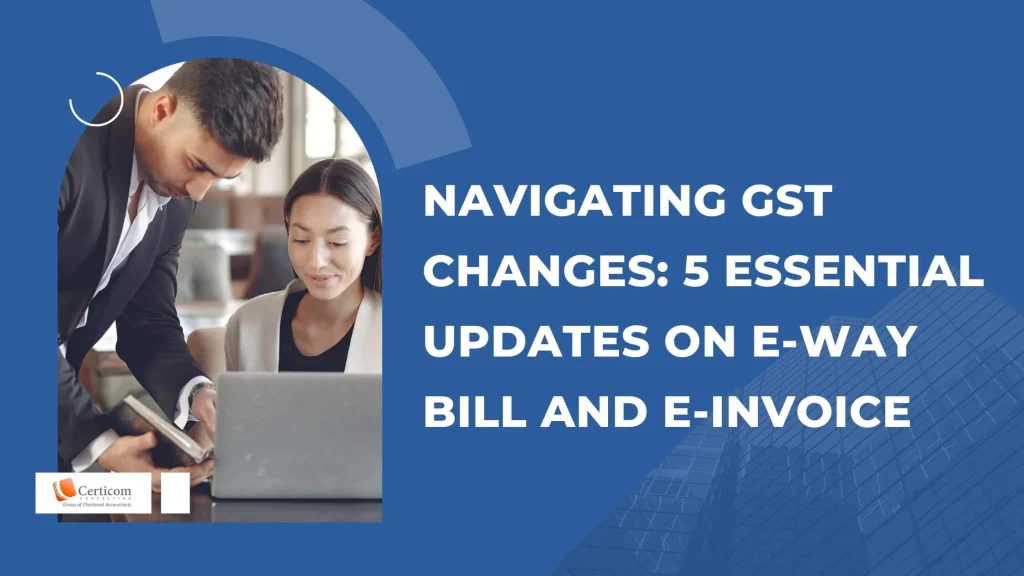UNDERSTANDING MSME THE EASY WAY: A COMPREHENSIVE GUIDE

MSME, an acronym for Micro, Small and Medium Enterprises, encapsulates a sector that’s synonymous with growth, innovation, and dynamism in India’s economy. Also known as Small Scale Industries (SSI), this sector has been steadily expanding over the last six decades. The government has played a significant role in promoting MSME through various policies, initiatives, and support mechanisms. The Udyam Registration system, investment classifications, and various incentives reflect an ongoing commitment to fostering growth within this sector.
The Uniqueness of MSME
What makes MSME truly stand apart is its multifaceted impact on the country’s socio-economic fabric. Here’s a closer look at the unique aspects:

1. Employment Generation
MSMEs are a major employment engine, providing opportunities across various skill levels. Unlike large industries that require substantial capital investment, MSMEs are more labor-intensive, resulting in employment creation at a lower cost.
2. Rural and Backward Area Development
MSMEs are instrumental in rural industrialization. By setting up units in remote areas, they contribute to regional development, alleviating disparities between urban and rural regions. This leads to balanced growth and social inclusion.
3. Complementary to Large Industries
MSMEs are not competitors to large industries but complementary. They often act as ancillary units, supplying essential components, intermediate goods, and finishing tasks, thereby forming a synergistic relationship.
4. Equitable Distribution of Wealth
The decentralized nature of MSMEs ensures a fairer distribution of wealth and income across the country. They promote a more balanced development model by allowing entrepreneurship and innovation to thrive in various regions.
5. Agility and Flexibility
MSMEs are known for their agility and ability to adapt to market changes. Their size allows them to respond quickly to new trends, demands, or shifts in the economy.
ELIGIBILITY: MSME Registration
Eligibility for MSME registration is broad, encompassing a variety of business structures. Here’s a detailed look at who can apply:
1. Proprietorship
- Single owner operating the business.
- Easiest to set up, with minimal regulatory compliance.
2. Partnership Firm
- Two or more individuals/entities running a business together.
- Governed by the Partnership Act of 1932, or as a Limited Liability Partnership (LLP) under the LLP Act of 2008.
3. Hindu Undivided Family (HUF)
- A specific family structure where business is owned and operated by a family.
- Governed by Hindu Law and offers certain tax benefits.
4. Company
- Includes Private Limited Companies, Public Limited Companies, One Person Companies (OPC).
- Governed by the Companies Act of 2013.
5. Trust
- A non-profit organization or a business entity set up as a trust.
- Governed by the Indian Trusts Act of 1882.
6. Society
- Another form of non-profit organization.
- Governed by the Societies Registration Act of 1860.
7. Any Other Entity
- Includes Limited Liability Partnerships (LLP), Co-operative Societies, and others.
- Must fall within the specified threshold limit.

MSME Benefits: An In-Depth Look
1. Permanent Registration
- A one-time process that provides a basic identification number.
- Offers validity for the life of the enterprise, without the need for renewals.
2. Paperless & Self-Declaration Based Registration
- Simple, streamlined, online process.
- Reduces bureaucratic hurdles and encourages transparency.
3. Multiple Activities Under One Registration
- Flexibility to specify or add various manufacturing or service activities.
- Encourages diversification and adaptability.
4. Registration on GeM & TReDS Platforms
- GeM (Government e-Marketplace): Enables participation in government procurement processes.
- TReDS (Trade Receivables Discounting System): Facilitates financing of trade receivables through platforms like invoicemart.com, m1xchange.com, rxil.in.
5. Access to Government Schemes
- Credit Guarantee Scheme: Provides financial backing to loans.
- Public Procurement Policy: Offers preferences in government tenders.
- Protection Against Delayed Payments: Ensures timely revenue.
6. Eligibility for Priority Sector Lending
- Preferential access to loans from banks.
- Boosts financial inclusion and eases credit constraints.
7. Subsidy on Patent Registration
- Encourages innovation and intellectual property protection.
- Enhances competitiveness on the global stage.
8. Reimbursement of ISO Certification
- Supports adherence to international quality standards.
- Builds credibility and facilitates access to global markets.
9. Collateral-Free Bank Loans
- Enhances access to finance without stringent collateral requirements.
- Vital for small and emerging enterprises to grow and scale.
Required Documents for Udyam Registration
1. AADHAR Card
The Aadhaar number shall be of the proprietor in the case of a proprietorship firm, of the managing partner in case of a partnership firm, of karta in case of a Hindu Undivided Family, of the authorised representative in case of a Company or a Limited Liability Partnership or a Cooperative Society or a Society or a Trust)
2. PAN Card
The PAN shall be of the proprietor in the case of a proprietorship firm, of the managing partner in case of a partnership firm, of karta in case of a Hindu Undivided Family, of the authorised representative in case of a Company or a Limited Liability Partnership or a Cooperative Society or a Society or a Trust.

Udyam Registration: A Step-by-Step Guide
Step 1: Navigate to the Udyam Registration Portal
- URL: https://udyamregistration.gov.in/
- This is the official website for Udyam Registration, making the process accessible online.
Step 2: Create an Account Using Aadhaar Number
- An Aadhaar number links the business with its proprietor or authorized representative, ensuring unique identification.
Step 3: Fill in Business Details
- Name: The legal name under which the business operates.
- Address: The official location of the business.
- Type of Organization: Whether the business is a sole proprietorship, partnership, company, etc.
- Bank Details: Information on the business’s bank account.
Step 4: Provide Investment Details
- Information about the investment made in plant and machinery or equipment, depending on the nature of the enterprise (manufacturing or service).
Step 5: Upload Required Documents
- Aadhaar Card: For identity verification.
- PAN Card: For tax-related purposes.
- Bank Statement: To verify the bank details provided.
Step 6: Verify and Submit the Application
- Ensures accuracy and completeness of the information.
- Submission initiates the verification process.
Step 7: Receive Acknowledgement
- An acknowledgement with a unique registration number confirms the successful submission.
- This number can be used to track the application status.
Step 8: Obtain the Registration Certificate
- After due verification, the registration certificate with the Udyam Registration Number will be issued.
- This is the final document, providing official recognition as an MSME.
Read More: APPLICABILITY OF TAX AUDIT TO INDIVIDUAL AND HUF EARNING BUSINESS INCOME
Understanding MSMEs is pivotal to grasp India’s economic landscape. This comprehensive guide has elucidated the vast scope of MSMEs, their crucial role in the nation’s growth, and the streamlined Udyam Registration process. It acts as a valuable resource for existing and aspiring entrepreneurs, reflecting the dynamic and robust nature of India’s MSME sector. With continual support and incentives from the government, MSMEs are poised for sustained growth and innovation, contributing substantially to India’s global competitiveness.
Related Post
Pros and Cons of Presumptive Taxation Scheme for Professionals
Understanding Form 3CD Amendments: What Changed from April 1, 2025
Book A One To One Consultation Now For FREE
How can we help? *




